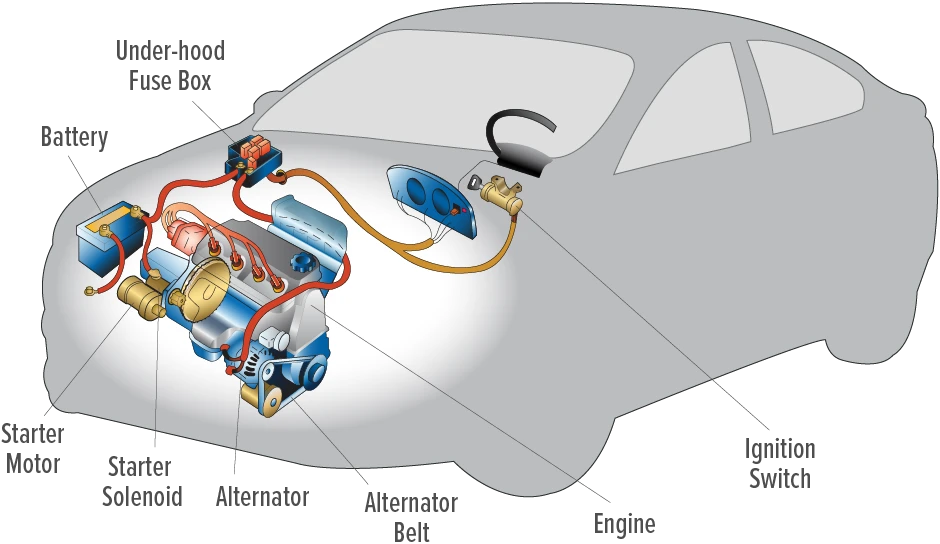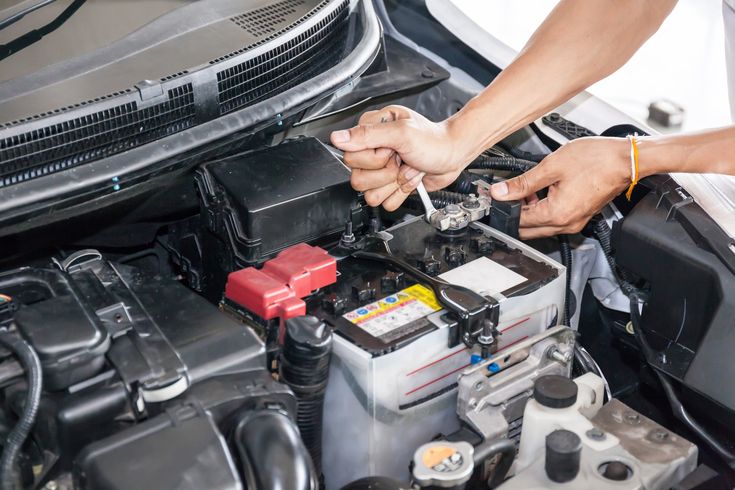Is your car leaving you stranded over and over again? You turn the key, but nothing happens—even though the car keeps dying battery and alternator are good. Let’s explore what might be causing the issue.
Frustrating, right? You’re not alone in this puzzling predicament. Many drivers face the same conundrum, wondering what could possibly be wrong when the usual suspects check out fine. We’re diving into the lesser-known culprits that could be draining your car’s life force.
By the end, you’ll have the insights you need to finally solve the mystery and get back on the road with confidence. Let’s unravel this together, so you can stop worrying and start driving. Stay with us, because the solution might be simpler than you think.

Credit: www.lesschwab.com
Common Electrical Drains
Is your car battery dying repeatedly despite a good alternator? This issue could stem from common electrical drains. These hidden culprits can silently sap your battery’s power. Understanding these drains might help you find the problem.
Parasitic Battery Drain
Parasitic battery drain occurs when electric components draw power with the engine off. Devices like alarms and radios can be the reason. Even a clock can contribute to battery drain. Testing each device might identify the cause. A mechanic can help trace the drain source.
Faulty Wiring
Faulty wiring is another potential issue. Old or damaged wires might short-circuit. This could drain your battery quickly. Inspect wiring for visible damage. Look for frayed or broken wires. A skilled technician can check wiring hidden from view.

Credit: carfromjapan.com
Environmental Factors
Environmental factors can significantly impact a car battery’s performance. Even if your battery and alternator are in good condition, external conditions may still cause issues. Understanding these factors can help prevent unexpected battery failures.
Extreme Temperatures
Extreme temperatures can affect your car battery. Both cold and hot weather can cause problems. In cold weather, the battery’s chemical reactions slow down. This makes it harder to start the engine. In hot weather, the battery fluid can evaporate. This reduces battery life and efficiency. To protect your battery, try to park in a garage or shaded area.
High Humidity
High humidity can also damage your car battery. Moisture can lead to corrosion on battery terminals. Corrosion affects the battery’s ability to provide power. This can cause the battery to die unexpectedly. Regularly check and clean the battery terminals to prevent this issue. Keeping the battery area dry helps maintain its performance.
Battery Health Concerns
Experiencing frequent car battery issues can be frustrating. Even with a good alternator, persistent battery troubles might indicate underlying health concerns. Understanding these concerns can help identify solutions and prevent future problems.
Aging Battery
Batteries naturally degrade over time. An old battery may struggle to hold a charge. If your battery is over three years old, it might be time for a replacement. Regularly check the battery’s age to ensure it’s still effective.
Older batteries can develop internal issues. These issues decrease their efficiency. Regular checks can help prevent sudden failures. Consider professional testing to assess its condition.
Corroded Connections
Corroded connections can impede battery performance. Corrosion disrupts the flow of electricity. Inspect the battery terminals for any signs of corrosion. Cleaning them can improve your car’s electrical system.
Use a wire brush to clean off the corrosion. Apply protective grease to prevent future buildup. Regular maintenance of battery terminals ensures optimal performance.
Malfunctioning Sensors
A car with a good battery and alternator might still have issues if sensors malfunction. Faulty sensors can send wrong signals, leading to a drained battery. Checking these sensors can help diagnose the problem and prevent further issues.
When your car keeps dying despite having a healthy battery and alternator, malfunctioning sensors might be the culprit. These sensors play a crucial role in maintaining the vehicle’s performance. If they’re not functioning correctly, they can cause unexpected battery drains. Imagine you’re on your way to an important meeting, and your car won’t start. Frustrating, right? Understanding how these sensors work can save you from such scenarios.
Faulty Voltage Regulator
The voltage regulator is responsible for maintaining a steady flow of electricity from the alternator to the battery. If it malfunctions, your battery might not get the correct voltage. This can lead to overcharging or undercharging, both of which are harmful to battery health. Think of it as a traffic cop for electricity. If it fails, chaos ensues. You might notice dimming headlights or flickering dashboard lights, which are tell-tale signs. Regular checks and timely replacement can prevent these issues.
Bad Battery Management System
The Battery Management System (BMS) monitors and manages the battery’s performance. A faulty BMS can give inaccurate readings, leading to unexpected battery failures. Imagine relying on a GPS that gives you wrong directions. That’s how your car feels with a bad BMS. It could make you think your battery is full when it’s actually running low. Keep an eye out for unusual battery behavior, such as rapid discharge or inconsistent power levels. Have you checked your sensors recently? It’s a small step that can prevent major inconveniences on the road. Embrace proactive maintenance to keep your car in top shape.
Accessory Issues
Your car keeps dying, yet the battery and alternator work fine. This can be baffling. Often, accessory issues are the hidden culprits. These are non-essential items connected to your car’s electrical system. They can drain your battery even when the car is off. Understanding these issues can prevent battery problems.
Aftermarket Equipment
Aftermarket equipment can be a problem. These are add-ons like stereo systems, GPS units, or lights. They can draw power constantly. Not all are installed correctly. Some can cause a slow drain on your battery. This weakens it over time. Check if your car has any of these devices. Make sure they are wired properly. Disconnect any suspect devices to see if the problem stops.
Faulty Alarm System
A faulty alarm system can also drain your battery. Alarms protect your vehicle, but defects can cause them to malfunction. They might activate without reason. This constant activation uses power. If your alarm goes off randomly, this could be the cause. Consider having a professional inspect your alarm system. Disabling it temporarily can help diagnose the issue.
Unusual Charging Patterns
Car batteries keep draining despite a good alternator and battery. Unusual charging patterns might be the cause. Check for parasitic drains, faulty wiring, or malfunctioning systems to solve this mystery.
Unusual charging patterns can puzzle many car owners. Sometimes, the battery dies even when the alternator works fine. Understanding these patterns helps in diagnosing the problem. Some driving habits may lead to unusual charging patterns.
Short Drives
Short drives can prevent the battery from charging fully. The alternator needs time to charge the battery. If your trips are brief, the battery might not get enough charge. This becomes an issue over time. The battery slowly drains without a full recharge.
Frequent Stop-and-go
Frequent stop-and-go driving can also affect the battery. Constant stopping and starting use more power. The alternator may not keep up with the demand. This leads to a partially charged battery. Over time, this can cause the battery to die. It’s important to consider driving habits. They impact the battery’s health significantly.
Maintenance Tips
Car battery issues persist despite a healthy alternator. Check connections and clean terminals. Inspect for parasitic drain. Consider replacing the battery if it’s old. Regular maintenance prevents unexpected dead batteries.
Experiencing a car that keeps dying despite having a good battery and alternator can be frustrating. It’s often a sign that regular maintenance might be overlooked. Proper care and attention to your vehicle’s battery can prevent unwanted surprises. Let’s explore some practical tips that can make a difference.
Regular Battery Inspections
Inspecting your battery regularly is crucial. Look for corrosion on the terminals, as this can affect the connection. A simple cleaning with a baking soda solution can help maintain a good connection. Make sure the battery is securely mounted. A loose battery can cause vibrations that might damage the connections. This small check can save you from bigger problems. Test the battery’s voltage periodically. A voltmeter is inexpensive and easy to use. It gives you a quick insight into your battery’s health.
Proper Storage Practices
Proper storage of your vehicle can extend the life of the battery. If you park your car for long periods, consider disconnecting the battery to prevent discharge. In colder climates, storing the car in a garage can protect the battery from freezing temperatures. This simple step can prevent battery failure. For longer storage, trickle chargers are a great investment. They keep the battery charged without overcharging, ensuring it’s ready when you need it. Have you considered how often you use your car? Frequent use keeps the battery charged, while infrequent use can lead to discharge. How can you adjust your routine to maintain your battery’s health? By focusing on these maintenance tips, you can ensure your car remains reliable. Regular attention to your battery can prevent unnecessary breakdowns and keep your vehicle running smoothly.

Credit: www.reddit.com
FAQs on Car Keeps Dying Battery And Alternator are Good
Why Does My Car Battery Keep Dying?
A car battery can die due to parasitic drains, faulty wiring, or temperature extremes. Even with a good alternator, persistent drains can deplete your battery. Check for lights left on or devices plugged in. Regular maintenance and inspections can help identify and resolve issues.
Can A Bad Ground Cause Battery Issues?
Yes, a bad ground can cause battery problems. Poor grounding impacts electrical flow, leading to battery drainage or charging issues. Inspect ground connections and ensure they are clean and secure. This can improve overall electrical system performance and prevent battery-related issues.
How Can I Identify A Parasitic Drain?
To identify a parasitic drain, use a multimeter to measure current draw when the car is off. Remove fuses one at a time to locate the circuit causing the drain. Once identified, investigate components on that circuit for faults or malfunctions.
Is Extreme Weather Affecting My Car Battery?
Extreme weather can affect battery performance. Cold temperatures slow chemical reactions, reducing battery efficiency. Heat can evaporate battery fluid, damaging internal components. Park in a garage or use a battery blanket in winter to mitigate these effects. Regular battery checks are also beneficial.
Conclusion
Finding the cause of a dying car battery can be tricky. Even with a good alternator, issues might persist. Common culprits include faulty wiring, bad connections, or a parasitic drain. Regular checks can spot hidden electrical problems. Don’t overlook battery age; older batteries lose efficiency.
Consider professional help if problems continue. Mechanics can diagnose complex issues effectively. Regular maintenance keeps your car running smoothly. Stay proactive with repairs to avoid future headaches. Knowing the basics helps in understanding car troubles better. Keep learning, keep driving, and keep your car in top shape.

